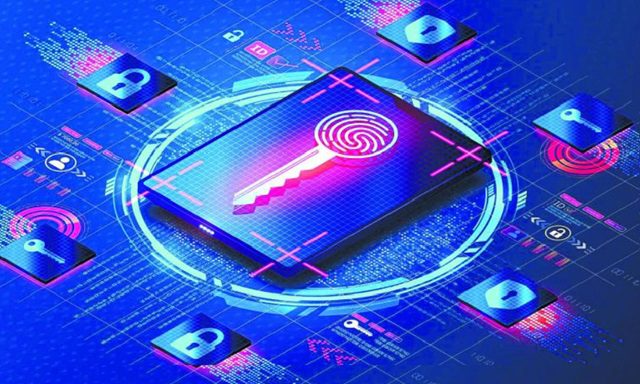BTN News: In our increasingly digital world, passwords have long been the gatekeepers to our online identities. From social media accounts to online banking, they serve as the first line of defense against unauthorized access. However, despite their widespread use, passwords are fraught with limitations. Remembering multiple complex combinations for various accounts can be cumbersome, and even the most intricate passwords are not immune to cybercriminals’ tactics. Enter passkeys—an emerging technology that offers a more secure and user-friendly alternative for online authentication. With tech giants like Google, Apple, and Microsoft leading the charge, passkeys may soon render traditional passwords obsolete.
Passkeys represent a new paradigm in online security, shifting away from the traditional password-based approach that relies on character combinations stored on servers. Instead, passkeys use asymmetric cryptography, a method involving two keys: one public and one private. The public key is stored by the website or application, while the private key remains securely on the user’s device. When a user attempts to log in, the site sends an encrypted message that can only be decrypted by the private key. This process is unlocked using biometric data—such as fingerprints or facial recognition—or a PIN, making the experience both seamless and secure.
Unlike passwords, which are vulnerable to phishing attacks and data breaches, passkeys are inherently more secure. Since each passkey is unique to a specific site, even if a user is tricked into visiting a fraudulent website, the system will recognize that the passkey does not match the legitimate site, effectively blocking the phishing attempt. This added layer of security could potentially end the era of password-related cyber threats, as hackers find themselves outmatched by the robust encryption of passkeys.
For users, the transition to passkeys could simplify the often frustrating task of managing numerous passwords. No longer would there be a need to remember complex strings of characters or rely on potentially insecure password managers. Instead, accessing an account would be as simple as scanning a fingerprint or entering a short PIN. This ease of use, combined with the enhanced security, makes passkeys an attractive option for both individuals and organizations.
Despite their advantages, the widespread adoption of passkeys faces certain challenges. One significant hurdle is the need for organizations to adapt their services and applications to support web-based authentication methods like passkeys. This requires a considerable investment in updating existing systems, which may not be feasible for all companies. Additionally, not all users are familiar with or trust this new technology. Many are accustomed to traditional passwords and may be hesitant to switch to a method they perceive as unfamiliar or complex. Moreover, not everyone owns devices equipped with biometric capabilities, such as fingerprint scanners or Face ID, which are integral to the passkey system.
However, the momentum behind passkeys is growing. Major companies like Google, Apple, and Microsoft have recognized the limitations of passwords and are actively promoting passkeys as a more secure alternative. Google, for instance, has already implemented passkeys as the default login method for its users, with over a billion authentications using this technology across 400 million accounts. As more users and organizations embrace this technology, the path towards a passwordless future becomes clearer.
While passkeys are not without their challenges, they represent a significant step forward in online security. As with any technology, they are not invulnerable; potential flaws in implementation could still be exploited by determined cybercriminals. However, the shift from passwords to passkeys marks a critical evolution in how we protect our digital identities. The road to eliminating passwords may be long, but with continued advancements and increasing adoption, passkeys could very well be the future of online authentication.


